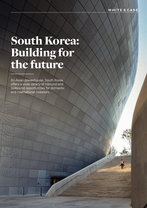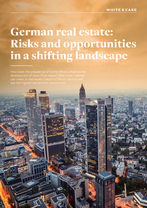Description
Dr. Stefan Feuerriegel
Partner, Hamburg
T +49 40 35005 217
E stefan.feuerriegel@whitecase.com
Endrik Lettau
Partner, Frankfurt
T +49 69 29994 1309
E endrik.lettau@whitecase.com
Dr. Holger Wolf
Partner, Frankfurt
T +49 69 29994 1527
E holger.wolf@whitecase.com
Andreas van den Eikel
Local Partner, Berlin
T +49 30 880911 740
E andreas.vandeneikel@whitecase.com
whitecase.com
© 2016 White & Case LLP
.









